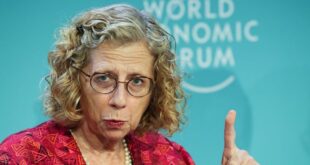KINSHASA (Reuters) – Congolese presidential candidate Martin Fayulu has a blunt message for voters: The 2018 election was stolen from him and he is back to fight for the top job he believes is rightfully his.
Fayulu, 67, a former oil executive and leader of the Engagement for Citizenship and Development party, came second to President Felix Tshisekedi in 2018. But Fayulu claims he won with over 62% of the vote and challenged the results in court.
The perceived injustice has fuelled Fayulu’s campaign for Democratic Republic of Congo’s Dec. 20 presidential election, which follows what he describes as five years of corruption, incompetence and insecurity under Tshisekedi.
He promises to end graft, which is rife in the Central African country of around 95 million people, create a stronger, well-paid army to fight insurgents who have created a humanitarian crisis in the east, and improve basic services like water, electricity and healthcare.
“Is there a single Congolese who can tell me that he lives better than in 2018?” Fayulu told Reuters in an interview last month. “Mr. Tshisekedi has done absolutely nothing.”
Fayulu is one of a few front-runners aiming to unseat Tshisekedi. It is not yet clear if he has the same support as in 2018 when he was nominated as the umbrella opposition candidate before Tshisekedi broke away to form an alliance with former President Joseph Kabila.
Back then, Fayulu’s message of anti corruption and stability after decades of turmoil rang true with the thousands of people who attended his rallies.
But so far this time, the opposition has been unable to reach an agreement over a united candidate, and many favour former mining magnate and presidential hopeful Moise Katumbi.
“I don’t think Fayulu can win alone. He is well known internationally but when it comes to a comparison with Katumbi, it is not the same,” said Zaynab Hoosen, political economist at Oxford Economics Africa.
Born in Kinshasa, Fayulu received a post graduate education in France and the United States before joining Mobil oil company in Congo in 1984, according to his official campaign biography.
He worked for the company in the U.S., France and Africa before he left in 2003, when it merged to become oil giant Exxon Mobil.
He has dabbled in politics since the 1990s, was elected as a deputy for Kinshasa in 2006, and created his own party in 2009. As a leading opposition candidate, he has often been in danger: He was present when police fired live rounds at his supporters ahead of the 2018 vote.
The experience, he says, makes him an ideal president.
“You have to entrust the country to someone who is not a thief, someone who is not corrupt, someone who has proven skills and is a patriot,” he told Reuters.
(Reporting by Ange Kasongo and Sonia Rolley; Writing by Edward McAllister; Editing by Cynthia Osterman)
 BeritaKini.biz Berita Viral Terkini di Malaysia
BeritaKini.biz Berita Viral Terkini di Malaysia





